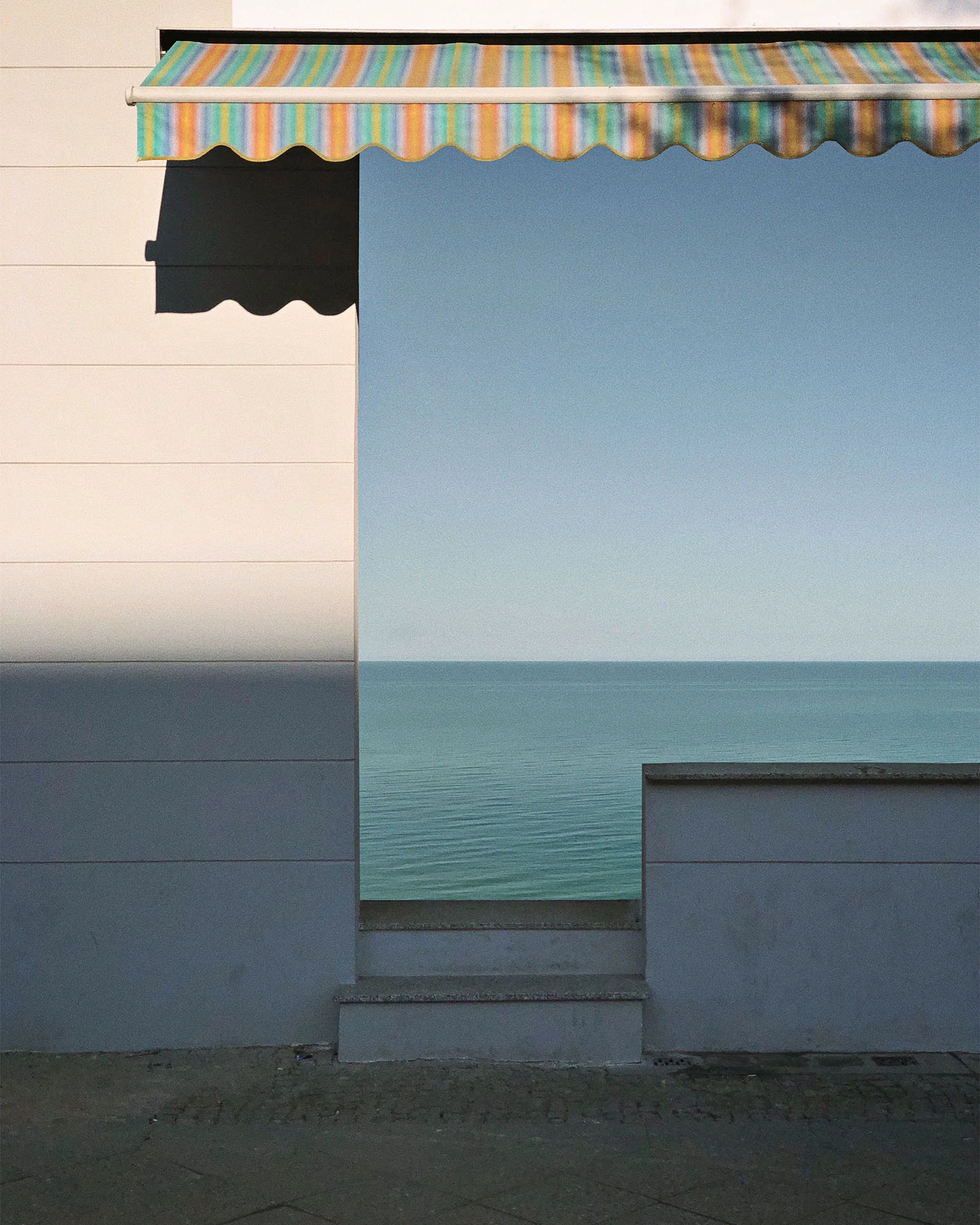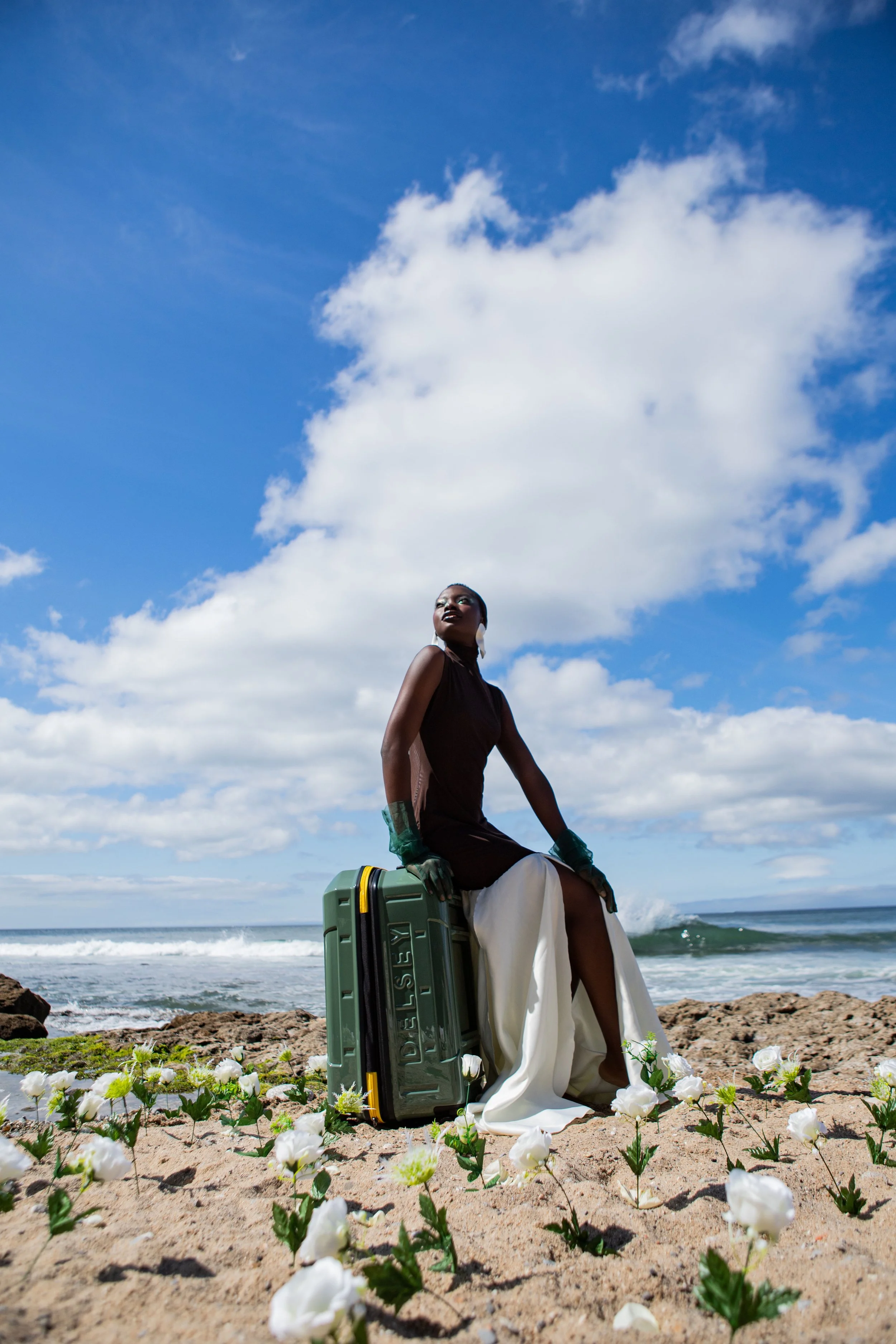Understanding The World in Jonas Bjerre-Poulsen’s Monograph The Reinvention of Forms
Understanding The World in Jonas Bjerre-Poulsen’s Monograph
The Reinvention of Forms
Jonas Bjerre-Poulsen Reinvents Forms Through Photography in His First Monograph
Name:
The Reinvention of Forms
Photography:
Jonas Bjerre-Poulsen
Words:
Caroline Meeusen
Photographer, architect, and founding partner at the renowned Danish studio Norm Architects, Jonas Bjerre-Poulsen, composed his first monograph The Reinvention of Forms, a collection of compelling black and white photographs. Published by Etui Editions, it’s not only a treat for the eye with striking, minimalist images, but the book includes several interesting textual additions as well, such as an introduction by Finnish architect Juhani Pallasmaa and a short fictional story by Danish author Thomas Rydahl.
In the book, Jonas puts nature, architecture, and human bodies in a different light. He, as the title suggests, reinvents the forms around him as “luminous images” which results in striking and intimate juxtapositions that make the viewer look twice. Wondering what’s behind the frame, they are drawn into this mesmerizing world of shapes and new forms. “Photography is the act of framing reality in a certain way and capturing a moment in the fluidity of time,” Jonas says. “In that sense photography is unreal. It is a staged, cropped, and selected impression used to create an artistic narrative with offset in our physical world. It often tells more about the voyeur than about the reality of what was captured. Creating an image with a camera takes observation and imagination. To capture a scene is to reinvent what is already there. Hence the title of the book.”
“Photography is the act of framing reality in a certain way and capturing a moment in the fluidity of time”
“I could sense her curves, her back, her hips, her buttocks, her thighs, everything moved through the thin fabric of the dress.”
“The sun hung sternly over the city, baking it brutally. A low voice came through a high window by an alleyway.”
In many ways, as the photographer tells us, the book is a study of form reminding him of his youth when he used to live in Rome. Jonas was training to become a painter and spent most of his time studying sculpture and classical architecture with paper and pencil in his hand. “Not to learn how to draw, but to understand shapes and proportions, to learn about anatomy and structures in order to understand how our world is constructed. Now the tool has just become my camera, but the project is still about understanding the world and its components, where one central element is the sphere,” he notes. Therefore, spherical shapes are an important and recurring motif in the still life series in The Reinvention of Forms. According to Jonas—and many other architects, designers, and artists for that matter—the sphere is a timeless shape which recurs in many variations of structures and motifs. It’s a shape that speaks to everyone, that defines the most intimate of spaces, that occurs in nature, and that we pass regularly in our everyday lives. To Jonas, this shape is incorporated into how we physically construct and mentally understand the world. A concept that is translated in detail into The Reinvention of Forms. “It goes from something that’s very haptic into something more visual. I found that when I started taking my camera out, that instead of having that full experience where you engage with all your senses at the same time, I started to break it into parts. I started to see things that I had never noticed before. The way I photograph is usually very quiet and I give myself enough time to focus on whatever subject I choose,” Jonas explains.
So, the monograph might be a study of forms, but it is just as much about understanding the world through our own bodies, our own symmetry, and through structures and patterns. “We translate what we perceive in nature and how we understand our own bodies into what we see in the arts,” Jonas adds. And what we see here in this book that is without a doubt an art object, is a mesmerizing aesthetic composed of tactile, minimalistic, and detailed photographs portraying instances of nature, bodies, and architecture in a black and white tone which makes it all the more exquisite and intriguing. In this beautifully soothing aesthetic, we recognize the underlying style and philosophy that Jonas shows across his works in both photography, design, and architecture. “I call it Soft Minimalism and consider it an ongoing study of mine; in human contentment and in creating wholesome, lasting environments. Our human-centric design principles are rooted in an uncompromising commitment to accommodate people—continuously questioning the quality in architecture and design. It is about finding the very essence of things through a soft, warm, and natural design language.”
“The moon rolling over the roof of the houses, like a smooth silver coin plopping into a piggybank.”
“Somewhere lost in the music, a trumpet squealed.”
“I hope that I can put people in the same state of melancholia as I feel when I’m photographing. Melancholia is not meant negatively. It’s something I find extremely beautiful.”
This book is a must-have for anyone who loves all things beautiful, who wants to be amazed by the beauty and mystery of known forms, and who wants to experience Jonas Bjerre-Poulsen’s unique take on this concept and photography.























